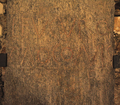VB·21: Difference between revisions
No edit summary |
|||
| (4 intermediate revisions by the same user not shown) | |||
| Line 1: | Line 1: | ||
{{inscription | {{inscription | ||
|reading=leucuro / moconis / filius!f | |reading=leucuro / moconis / filius!f | ||
|reading_lepontic= | |reading_lepontic={{c|L|L3|d}}{{c|E|E4|d}}{{c|U||d}}{{c|C||d}}{{c|U||d}}{{c|R|R6|d}}{{c|O|O6|d}}<br>{{c|M|M6|d}}{{c|O|O2|d}}{{c|C||d}}{{c|O||d}}{{c|N|N7|d}}{{c|I||d}}{{c|S|S6|d}}<br> {{c|V|V4|d}} | ||
|direction=dextroverse | |direction=dextroverse | ||
|letter_height_min= | |letter_height_min=6.5 cm | ||
|letter_height_max=11 cm | |||
|letter_number_min=15 | |letter_number_min=15 | ||
|word_number=3 | |word_number=3 | ||
| Line 13: | Line 14: | ||
|orientation=0 | |orientation=0 | ||
|workmanship=carved | |workmanship=carved | ||
|condition= | |condition=complete | ||
|type_inscription=funerary | |type_inscription=funerary | ||
|language=Latin | |language=Latin | ||
| Line 21: | Line 22: | ||
|source_detail=Morandi 2004: 563 no. 64 | |source_detail=Morandi 2004: 563 no. 64 | ||
|checklevel=1 | |checklevel=1 | ||
|problem= | |problem=R | ||
}} | }} | ||
== Commentary == | == Commentary == | ||
First published in {{bib|Poggi 1886}}: 129–131, 156 f. | First published in {{bib|Poggi 1886}}: 129–131, 156 f. Examined for LexLep on 20<sup>th</sup> April 2024. | ||
Image in {{bib|Müller 1913}}: tav. V (drawing), {{bib|Caramella & De Giuli 1993}}: 231 (drawing). | |||
Inscribed in three lines in the upper area of the stela (length line 1 46 cm, line 2 48.5 cm; distance from top 22 cm); lines 1 and 2 are written between two horizontal frame lines (distance 24 cm). The script is Latin, the letters are executed with serifs. {{bib|Mainardis 2009}}: 344 suggests that the {{c|V|V4|d}} for {{w||filius}} is written in a third line because it was felt to be a novel addition to the traditionally two-word name formula. Remnants of red paint have recently been detected in the grooves of the letters and will be tested to determine whether they are ancient (Elisa Lanza p.c.). | |||
The text is a Latinised name formula with individual name and filiation; both names are etymologically Celtic (see the word pages). | |||
See the object page on the dating. Based on the stela shape, presence of a frame and possible remnants of Lepontic influence in the layout, but not the letter forms, VB·21 is likely to be one of the later, though not among the very latest of the attested Verbano gravestones. | |||
See also {{bib|Poggi 1887}}: 82 f., {{bib|Barocelli 1918}}: 89 f., {{bib|Tibiletti Bruno 1978c}}: 26, {{bib|Tibiletti Bruno 1981}}: 169, no. 15c. | |||
<p style="text-align:right;>[[User:Corinna Salomon|Corinna Salomon]]</p> | |||
{{bibliography}} | {{bibliography}} | ||
Latest revision as of 14:01, 16 August 2024
| Inscription | |
|---|---|
| Reading in transliteration: | leucuro / moconis / f |
| Reading in original script: | |
|
| |
| Object: | VB·21 Verbania (stela) |
| Position: | top |
| Orientation: | 0° |
| Direction of writing: | dextroverse |
| Script: | Latin script |
| Letter height: | 6.5–11 cm2.559 in <br />4.331 in <br /> |
| Number of letters: | 15 |
| Number of words: | 3 |
| Number of lines: | 3 |
| Workmanship: | carved |
| Condition: | complete |
|
| |
| Archaeological culture: | Augustan, Tiberian [from object] |
| Date of inscription: | late 1st c. BC–early 1st c. AD [from object] |
|
| |
| Type: | funerary |
| Language: | Latin |
| Meaning: | 'Leucuro son of Moco' |
|
| |
| Alternative sigla: | Tibiletti Bruno 1981: 15 c Morandi 2004: 64 |
|
| |
| Sources: | Morandi 2004: 563 no. 64 |
Images
Commentary
First published in Poggi 1886: 129–131, 156 f. Examined for LexLep on 20th April 2024.
Image in Müller 1913: tav. V (drawing), Caramella & De Giuli 1993: 231 (drawing).
Inscribed in three lines in the upper area of the stela (length line 1 46 cm, line 2 48.5 cm; distance from top 22 cm); lines 1 and 2 are written between two horizontal frame lines (distance 24 cm). The script is Latin, the letters are executed with serifs. Mainardis 2009: 344 suggests that the ![]() for filius is written in a third line because it was felt to be a novel addition to the traditionally two-word name formula. Remnants of red paint have recently been detected in the grooves of the letters and will be tested to determine whether they are ancient (Elisa Lanza p.c.).
for filius is written in a third line because it was felt to be a novel addition to the traditionally two-word name formula. Remnants of red paint have recently been detected in the grooves of the letters and will be tested to determine whether they are ancient (Elisa Lanza p.c.).
The text is a Latinised name formula with individual name and filiation; both names are etymologically Celtic (see the word pages).
See the object page on the dating. Based on the stela shape, presence of a frame and possible remnants of Lepontic influence in the layout, but not the letter forms, VB·21 is likely to be one of the later, though not among the very latest of the attested Verbano gravestones.
See also Poggi 1887: 82 f., Barocelli 1918: 89 f., Tibiletti Bruno 1978c: 26, Tibiletti Bruno 1981: 169, no. 15c.
Bibliography
| Barocelli 1918 | Pietro Barocelli, "III. Zoverallo. Necropoli di età romana. Scoperta di un nuova tomba", Notizie degli Scavi di Antichità 15 (1918), 88–90. |
|---|---|
| Caramella & De Giuli 1993 | Pierangelo Caramella, Alberto De Giuli, Archeologia dell'Alto Novarese, Mergozzo: Antiquarium Mergozzo 1993. |

